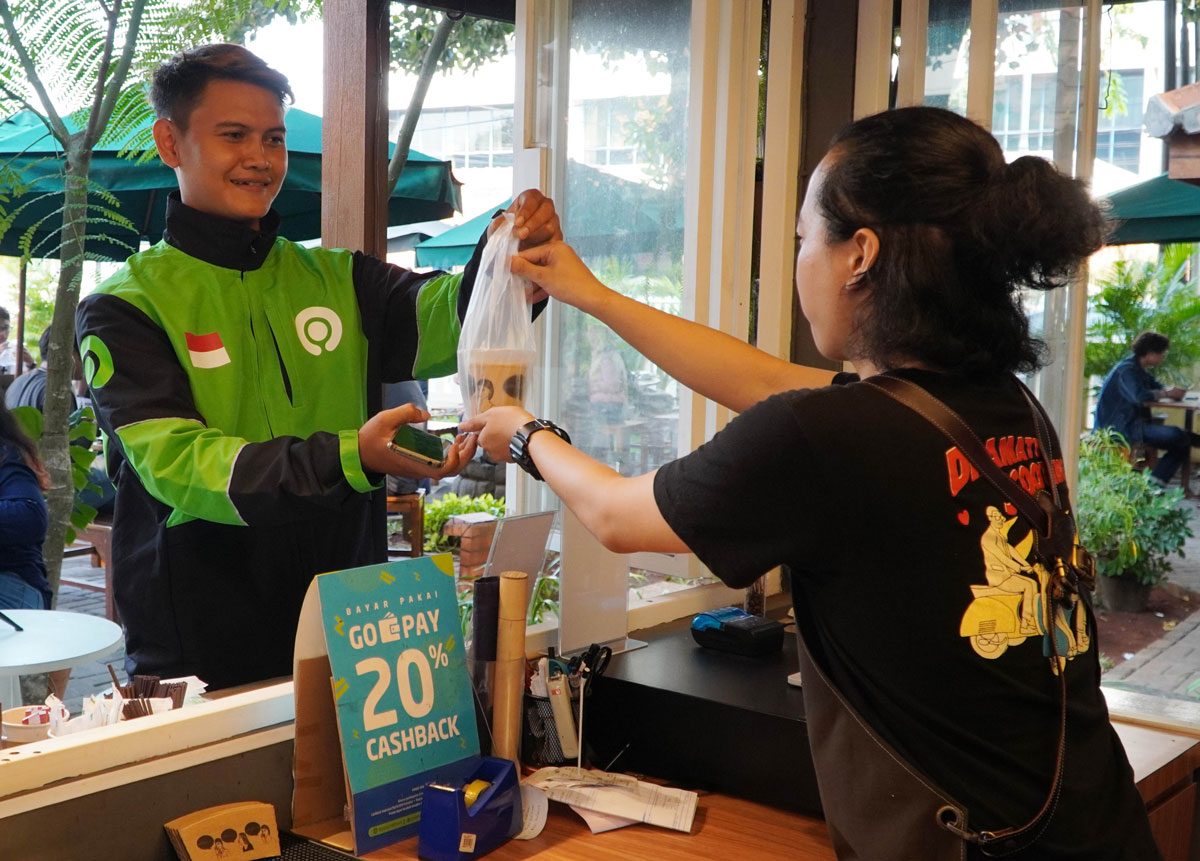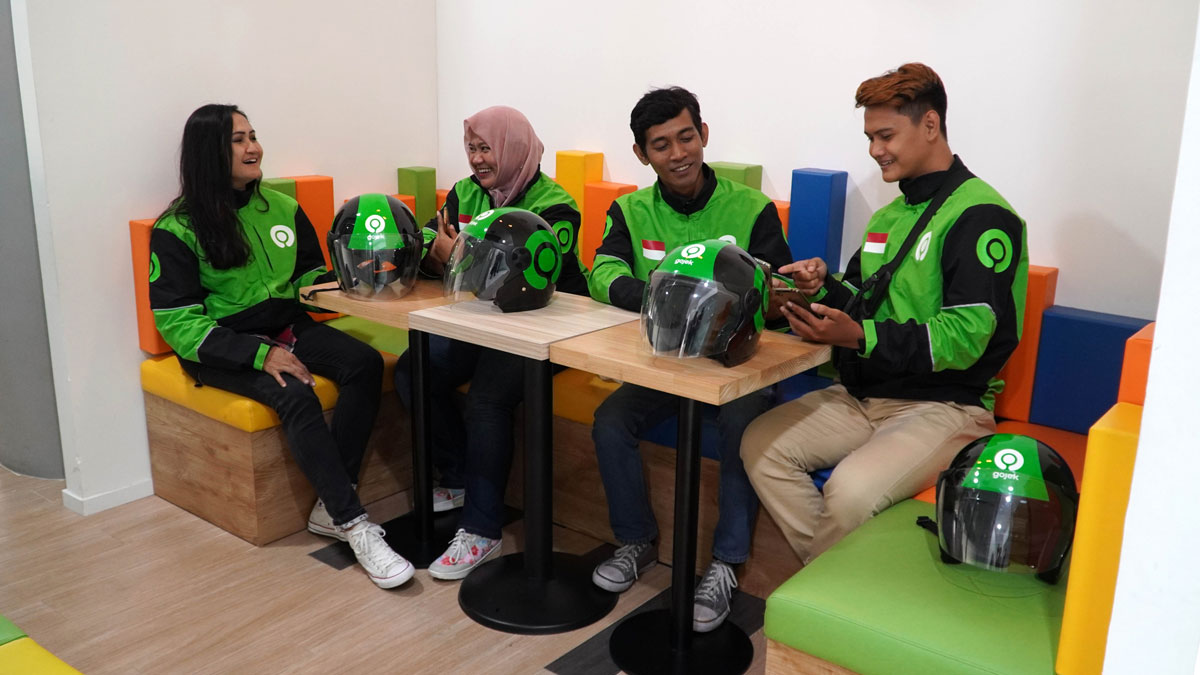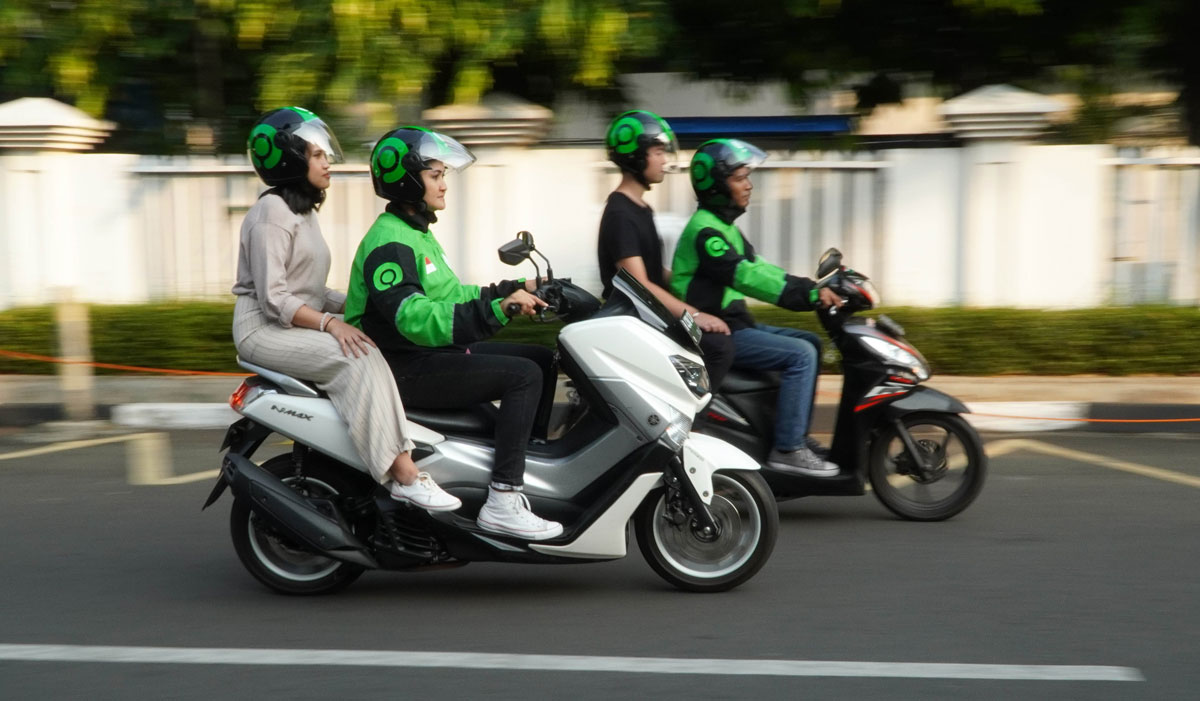When the ride-hailing app Gojek was launched in Indonesia, smartphones were already an inescapable item among Indonesian vast growing digital society. The homegrown app quickly gained popularity in Indonesia with exceptionally rapid growth in its early months. After 1.5 years since its launch in January 2015, the Gojek app quickly generated 70 million downloads.
The handy platform helps millions of people order a ride wherever they are as long as they have internet connection.
Leo Hermawan is just one among millions of customers who benefit from Gojek. Leo, who used to work in the entertainment industry, had to travel across Jakarta to host shows as a TV presenter and found the app a reliable option, enabling him to get around faster amid busy traffic.
When Leo changed his career path, becoming a diet coach for a weight management company, Gojek had already launched many new features on its app. As a diet coach, Leo holds monthly coaching sessions about nutrition and weight loss, with each session in Jakarta drawing hundreds of participants. Besides the coaching session, Leo sends packages of dietary supplements to eager participants.
The Gojek app saves his day. For the participants living in Greater Jakarta, he sends the packages with the GoSend Same Day service. He needs to use the same-day delivery to send around 20 to 50 packages a month.
“The app really helps my business,” Leo says. “The participants are particularly eager to practice what they’ve got from the workshop earlier. They want to try the diet kit and start their program on the very same day.”
Gojek’s same-day delivery service has helped Leo and many urban people who turn to the growing gig economy. Another example is Siti Aminah, who decided to resign from her job as a full-time elementary school teacher and started her own online business.
Being able to work remotely from home, Aminah juggles three different jobs: a private insurance agent, a female Islamic study group member (majelis taklim), and a dropshipper for her own online business. The third job is what makes her busy for the most part.
Aminah, who connects buyers and sellers, is responsible for the shipping of a purchase. She doesn’t own any stock at her home in Bintaro, South Tangerang. She only needs to manage the delivery with a tap on her smartphone. Her dropshipping store handles frozen food, snacks, and fruits for orders in Greater Jakarta.
“If the products can get spoiled in a short period of time, like durian, I would definitely use the GoSend Same Day service,” Aminah says.
So far, she finds Gojek a reliable app to get her products safely arrive to her customers.
On a busy day, Amindah can send up to nine packages daily. The orders, however, might come at unexpected times. But thanks to technology, she still can handle them wherever she is, either when she is at the office of the private insurance company or when she is riding a train during her commute.
Gojek has brought benefits to millions of people in Indonesia. Sandy Ooi, a New York native who lives in Jakarta, is no exception. Sandy moved to Indonesia in 2013. She has established and run a number of English-speaking day care centers in Greater Jakarta, one of which is open for refugees in Indonesia while awaiting placements in host countries.
Sandy has to travel to different places every day. She might have to visit her day care center in Kuningan in South Jakarta, Sudirman in South Jakarta, Muara Karang in North Jakarta, or the ones located in BSD and Alam Sutera in South Tangerang.
To make her work easier, Sandy even has two homes to go to: an apartment in South Jakarta and a house in Karawaci, Tangerang City, where she stays the night depending on her schedule.
Sandy, however, doesn’t have a car in Indonesia. But taking public transportation would take much longer. “It could take three hours or so for me to get to work,” she says. Thus, she always relies on Gojek for going to work--it’s a motorbike if it’s only a short trip, and a car for a longer one.
Sandy also uses other services from the on-demand app for her routines. In the morning, before getting inside her GoCar, Sandy would grab a cup of coffee in the nearby convenience store and uses GoPay to complete the transaction. Whenever she doesn’t have time to dine in for lunch, she would order GoFood instead.
Evolution from a call center to Indonesia’s first decacorn
 GoFood service helps quench thirst for busy Jakartans (JP/ Arief Suhardiman)
GoFood service helps quench thirst for busy Jakartans (JP/ Arief Suhardiman)
Gojek has become a market leader. Within the last three years, the company saw exponential growth by 12 times. Its weekly active users are 1.5 times more compared to its nearest competitor. The tech giant is currently offering 21 services within the app, ranging from ride-hailing to food and logistics delivery.
Evolving from a ride hailing app to an on-demand app, Gojek has changed how people, food, and logistics move from one place to another. It has since evolved to become South East Asia’s foremost technology platform, with three super-apps for consumers, driver partners and merchants.
Since its establishment in 2010, Gojek has always sought to give solutions to daily hassles in every possible aspect in life, says Gojek founder and CEO Nadiem Makarim. “We want people to think that whenever there is a life challenge, Gojek has a smart solution to that.”
Gojek services and its e-wallet, GoPay, have changed how money moves, reshaping how people purchase and pay for things. Gojek users can book movie tickets or pay their utility bills without needing to wait in line. Those wanting to donate to the underprivileged don’t need to withdraw money at ATM machines to demonstrate their compassion for others; they just need to donate via GoGive.
 GoRiders share stories while waiting for their food order on GoFood (JP/ Arief Suhardiman)
GoRiders share stories while waiting for their food order on GoFood (JP/ Arief Suhardiman)
The ride-hailing and food delivery services are the most popular services on the Gojek app. In total, Gojek riders and drivers have traveled at least 9 billion km. GoFood has delivered a total of 12,725,600 martabak (pan fried pancakes) and 37, 609,054 ayam geprek (crushed crispy chicken with sambal sauce). For the past three years, Gojek users have also been very generous consumers. Through the app's payment method GoPay, users of Gojek have given more than Rp 285 billion in tips that all went to drivers and service providers.
As Indonesia’s first decacorn, Gojek recently marked its evolution with rebranding, in which the company has launched a new logo and dropped hyphens from its service names. (It’s Gojek, not Go-Jek. It’s GoRide and GoSend, not Go-Ride and Go-Send.)
This move marks the milestone of turning from a ride-hailing startup app into an on-demand super-app with multiple services and millions of active users.
“Through this rebranding, we aim to strengthen Gojek’s position as the leading technology platform in Southeast Asia, the pride of the nation that provides solutions for all parties in the ecosystem to live better lives,” says Nadiem.
Gojek is committed to introducing innovations, or life hacks, to improve life through technology and data. Gojek also aims to get a better understanding of its market. “We optimize products and services, personalizing them with each customer’s preferences,” says Nadiem. “We want Gojek to be the go-to source of ideas, solutions and inspiration that empowers people to overcome everyday barriers and limitations to progress.”
GoPay, aiming to provide further convenience for everyone, wants to introduce cashless payments and present various features that can make life easier, like buying food, commuting, shopping, donating and gaming. “We want more people to be able to experience the easier, safer, and more transparent way of making a payment,” says GoPay CEO Aldi Haryopratomo.
Gojek has taken precautionary measures to ensure the security of its customers, featuring the One Time Password (OTP) technology for authentication and employing PIN for authorization.
“We also proactively and regularly remind customers with alerts and notifications to deter social engineering threats,” Aldi says.
As consumers expect their personal information to be continually safeguarded, adds Aldi, GoPay has a special team for security to prevent fraud and money laundering.
Aminah, who works as a dropshipper, has unshakable confidence in the e-wallet. Due to her online business, she manages to keep her GoPay balance up to Rp 3 million every week.
But she also uses her GoPay for other services. When she and her family moved to a new house in April, she employed Gojek to make things simpler and more efficient. She hired the GoClean service to pack her furniture and belongings, and ordered GoBox to move her goods.
Moreover, Aminah trusts Gojek to pick up her son to his kindergarten every day. She feels secure because she knows the identity of the Gojek driver and that she can monitor the trip from the GPS.
From time to time, Aminah also uses the app for other on-demand services, like GoMassage when she gets tired after working all day and GoClean when she thinks her house gets messy.
And after all these years, Aminah only has Gojek on her phone.
“I’m a loyal person,” she said laughing. “I only downloaded Gojek and that’s enough. I’m very grateful for it. The app has been really helpful.”







